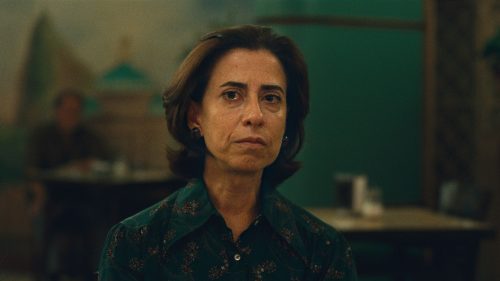
Why does Walter Salles prefer road movies? Might it be because he is a nomad himself? Salles was born in Rio de Janeiro in 1956 to later move to France and to America, following his father’s job. He then moves back to Brazil, where he begins his filmmaking career with documentaries on his native country. Salles decided to pick up filmmaking after seeing Michelangelo Antonioni’s The Passenger: a film on travel as source of alienation and loss of identity. An innate talent for landscape cinematography, his directorial style is flowy and very American. He didn’t follow Antonioni’s example to the very end, rather, for Salles travel begins with looking for a father who isn’t there and who will never be found. The real payoff of travel lie somewhere else, in the final loss of everything we used to hold true and, at the same time, inner growth coming from a process of appropriating one’s own roots.
Let’s take a look at his greatest films: Central Station of 1998, made him known worldwide. It is the story of a cold, cynical woman and of a child who just lost his mother in an accident. The two travel to the child’s village, but won’t find his father, there. They’ll find the child’s siblings, though, and the woman will find new dignity and self-awareness. Another couple of travelers are the protagonist of The Motorcycle Diaries (2004). The two are a young Ernesto Guevara and his friend Alberto Granado, who would then follow Guevara to Cuba.
Social and economic inequality shattering the lives of Chilean miners and Peruvian indio farmers: travel is the chance to reflect on the need to step out of bourgeois comfort zone and try to understand the radical, antagonistic analyses growing from the dream of libertadores: a kind of South America that could unite under one flag. On the Road of 2012 has been inspired by Jack Kerouac’s story. We are looking at the third drifting couple crossing North America. Only Sal Paradise (starring as Kerouac) will stay relatively safe from the drugged hyper-kineticism of these several journeys. Only Neal Cassady, yet another father in Walter Selles’ cinema that nobody will ever find, will be the one to succumb.

Brazil, 1971. In a country under the tight grip of military dictatorship, Eunice Paiva’s life, along with that of her five children, changes dramatically following the disappearance of her husband, former Brazilian Labor Party deputy Rubens Paiva. Adapted from the memoir...
Salles’ first film on physical journey as the one tool to appropriate one’s own roots. The act of going grows into the awareness of one’s own Heimat.
The travel beginning purely as a road trip grows into a journey of political education and class awareness. Social injustice must be dealt with. By the Peruvian leper hospital, the two swim across the river that divides the sick from the healthy. Then, it’s the time for some guerrilla warfare. The film deliberately overlooks this section of Guevara’s formation, but gently hints at it…
Salles never pushed the lever of horror in this dark psychological thriller set in one brutalist apartment complex in Roosevelt Island, New York.
Sal Paradise and Dean Moriarty bid farewell in New York in January 1951. On January 4, 1952, Ernesto Guevara de la Serna and his friend Alberto Granado leave Buenos Aires with their Norton motorcycle to tour South America. An happy coincidence that the two most momentous road movies of the American continent came out so close to one another.